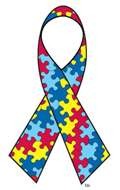Medicaid Is Under Attack!
 As in years past, the government continues to look for ways to restrict Medicaid eligibility and benefits. This year has been no different. There were proposals to further restrict Medicaid eligibility and coverage. As part of the governor’s annual budget, the New York State Senate and Assembly were presented with a plan to:
As in years past, the government continues to look for ways to restrict Medicaid eligibility and benefits. This year has been no different. There were proposals to further restrict Medicaid eligibility and coverage. As part of the governor’s annual budget, the New York State Senate and Assembly were presented with a plan to:
- Eliminate or reduce spousal refusal;
- Reduce the community spouse resource allowance; and
- Limit what services Medicaid would pay for.
Fortunately, both houses rejected these proposals. But this may not be the end of the story.








 Hospitals will soon be required to provide information to caregivers about their loved one’s discharge and instructions for administering medical aftercare.
Hospitals will soon be required to provide information to caregivers about their loved one’s discharge and instructions for administering medical aftercare.